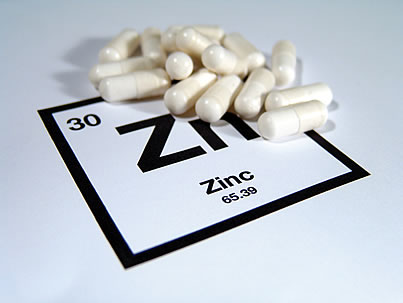Our bodies need a variety or micro-nutrients to function properly and one of them is Zinc.
Zinc is an essential micro-nutrient that is crucial to almost every aspect of your health.
It’s the second most abundant trace mineral in the body and research shows that this mineral may enhance immune function, stabilize blood sugar levels, and help keep your skin, eyes, and heart healthy.
Most of the zinc in our bodies come from the things we eat, but sometimes it is necessary to take zinc supplements to help treat an array of ailments.
Some of the benefits of zinc include:
May Improve Immune Function
Many over-the-counter medications and natural remedies contain zinc due to its ability to boost immune function and fight inflammation. Several studies have shown that taking zinc within the first 24 hours of cold symptoms reduced the duration of symptoms by an average of about one day.
Zinc may also act as an antioxidant, helping reduce inflammation and protecting against chronic conditions, such as heart disease, cancer, and diabetes.
One study in 50 older adults found that taking 45 mg of zinc gluconate for one year decreased several markers of inflammation and reduced the frequency of infections.
May Promote Blood Sugar Control
Zinc is well known for its role in blood sugar control and insulin secretion. Insulin is the hormone responsible for transporting sugar from your bloodstream to your tissues.
Some research suggests that zinc may help keep blood sugar levels steady and improve your body’s sensitivity to insulin. It has also been reported that zinc supplements were effective at enhancing both short-term and long-term blood sugar control in people with diabetes.
Other research shows that zinc may help reduce insulin resistance, which can improve your body’s ability to use insulin efficiently to maintain normal blood sugar levels.
Helps Fight Acne
Zinc supplements are often used to promote skin health and treat common skin conditions like acne .
Zinc sulfate has been shown to be especially useful for decreasing symptoms of severe acne.
Now that we know some of the benefits of zinc, how much zinc should we be taking.
Different zinc supplements contain varying concentrations of elemental zinc. The recommended dosage for daily supplements is 15–30 mg.
When used as directed, zinc supplements can be a safe and effective way to increase your zinc intake and improve several aspects of your health.
However, they have been associated with adverse side effects, including nausea, vomiting, diarrhea, and stomach pain.
Taking more than 40 mg per day of elemental zinc can cause flu-like symptoms, such as fever, coughing, headache, and fatigue.
Zinc can also interfere with your body’s ability to absorb copper, potentially leading to a deficiency in this key mineral over time.
Zinc supplements have also been shown to interfere with the absorption of certain antibiotics, reducing their effectiveness if taken at the same time.
To reduce your risk of side effects, stick to the recommended dosage and avoid exceeding the tolerable upper limit of 40 mg per day — unless under medical supervision.
If you experience any negative side effects after taking zinc supplements, decrease your dosage and consider consulting with your healthcare professional if symptoms persist.






